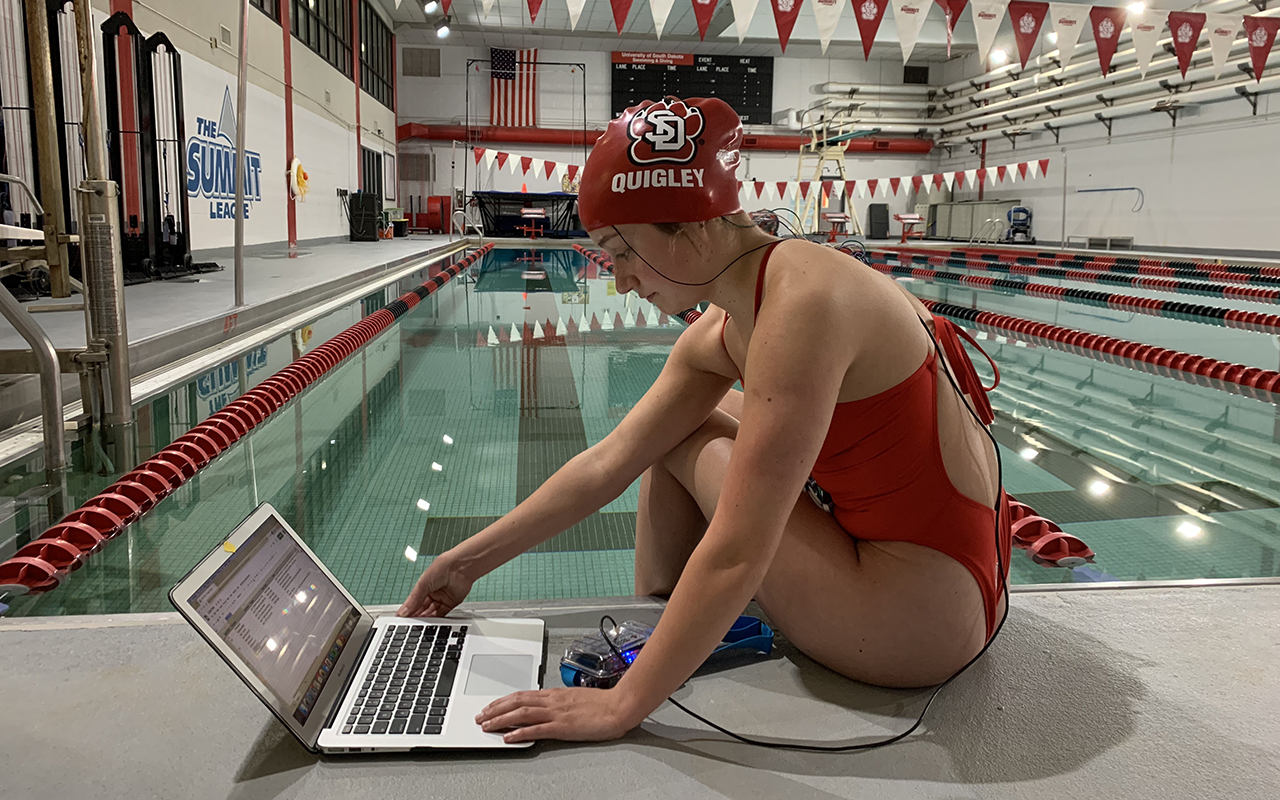Using Personal Setbacks, USD Alum Studies to Seek Change at NCAA Level

This wasn't the Ontario, Canada, native's first concussion, and she knew the recovery would be unclear and full of daily tests. Quigley took an Immediate Post-Concussion and Cognitive Test (imPACT) to determine how much damage she needed to recover from compared to her pre-season baseline imPACT scores.

Due to her history in college athletics, unclear and unstandardized concussion protocol in the NCAA and a passion for neuroscience, Quigley dreamed of studying the human brain, how concussions impact people for life and how the NCAA could create a standardized protocol to protect athletes from reinjury.
“I wanted to do this because of the concussions I had in high school and college that changed my life somewhat for the better and somewhat for the worst,” Quigley said. “I think everyone deserves better access to health care, specifically concussion care, so that people don't have to live with symptoms for the rest of their life that could have been prevented in rehab.”
Journey Toward a Ph.D.
“After taking Dr. Peterson's undergrad class, Exploring Neuroscience, I became passionate about the material, and getting to do research with him on top of that was really amazing,” Quigley said. “I began doing research on athletes, and that made me realize that I could build a career off the two things I was passionate about. I also enjoyed connecting with my professors and seeing what they get to do in their day-to-day jobs. That helped me realize that's something that I would want to pursue because I can combine everything I’m interested in for my Ph.D.”
“I was an international student ambassador, College of Arts and Sciences ambassador, peer mentor and was a member of the Native American Cultural Center, as a member of a Canadian Metis tribe,” Quigley said. “Alongside all of my volunteering activities, like the Special Olympics and Dakotathon, I was able to build up a strong resume to get into a grad school.”
“Swimming gave me an inspiration for my career path, and I began doing things like research in different labs to follow the career path and pursue the skills I needed en route to earning my Ph.D.,” Quigley said.
Making a Change
During the next five years, Quigley aims to graduate with a M.S. in kinesiology and a Ph.D. in integrative neuroscience from UNR.

Quigley’s main goal with her work is to establish that each university has at least one athletic trainer who is trained and certified in concussion protocol, so they can pick up on the small differences crucial to concussion-related injuries, alleviating the challenges she faced during her concussions.
“I'm doing sports-related concussion research in my Ph.D. program, and I hope that I'll be able to create concussion testing certification classes while improving baseline concussion testing and post-injury testing. I hope to be able to work with the NCAA to establish a standardized protocol so that smaller schools that don't have as large of an athletic budget are still getting the same quality of concussion treatment as larger schools do,” Quigley said.
